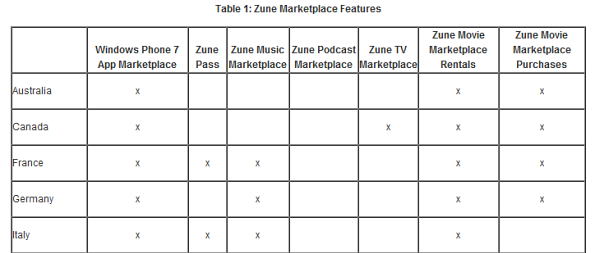
It's all about The Cloud these days - your data, you entertainment, your everything - stored on a service that you can access with any online connection. The benefits are many, but what you don't always hear about are the down-sides of everything being cloud-based. What if you get locked out of your account? I've heard of more than a few people that get locked out of their Gmail account or who can't access their Gmail calendar. It happens to Hotmail and Yahoo users as well. What if the company hosting your information deletes it, either accidentally or not, or goes out of business? That's not an uncommon problem. In terms of uptime most cloud services are fairly robust, when things go wrong, they can really ruin your day.
Case in point: my wife uses an HTC Snap Windows Mobile 6.1 phone, and it's connected to a 4smartphone hosted Exchange account. With our 17 month old running around the house, she uses per phone as the primary device for doing email and calendaring tasks rather than her desktop computer. 99.9% of the time, that works really great. But when you rely on The Cloud and something goes wrong, it can seriously mess things up - for some odd reason back in early November the phone stopped synching with 4smarpthone. That means no new email, no ability to add or edit new calendar items, etc. Texting and contacts still worked just fine, but without access to email, the phone was of little use to my wife. Now, unlike my Web site accounts which reside on the server I rent, when something goes wrong with 4smartphone, there's nothing I can do about it other than ask someone in tech support what's going on. And of course, I have to use a different email address than the primary address, because that's broken.
4smartphone tech support wasn't sure what was going on; I tried everything I could think of, even going to far as to hard reset the phone, which allowed me to re-establish the partnership from scratch. It still didn't work. Frustrated, I gave up at the end of the day. The next morning, amazingly, everything was working again. I didn't change anything, but the phone was once again synchronizing with the Exchange server. Undoubtedly, someone at 4smartphone did something - perhaps fixed something they broke - but the end result was the same without The Cloud, my wife couldn't do what she needed with her phone.
When it comes to email, virtually all of us rely on The Cloud in some fashion - because unless you're running your own mail server on a computer you have physical access to, your email for all intents and purposes is in The Cloud. Some people take it a step further though, storing all their documents, music, photos, videos, etc. purely in The Cloud - there's no local storage of those things. That's the part of The Cloud that I can't get behind; I value my files/data too much to ever trust someone else to take care of it. Sure, I use Mozy [Affiliate] to back up my data, but it's not my sole backup - and I'd never dream of having only one copy of something. Every single one of my nearly 200 videos uploaded to YouTube exist as a backup copy on my Windows Home Server and an external hard drive - and then also on Mozy. And when it comes to getting work done, even if I lose Internet access completely, I have all my offline email, contacts, documents, etc. so I can keep working. When you rely on The Cloud for all of that, you're almost useless when your data connection to The Cloud breaks. The Cloud is good at a lot of different tasks, but being the sole repository for your data isn't one of those things.
Don't get me started on cloud-based programs that require large data uploads before anything useful can be done - are you really any further ahead on editing your photos using a cloud-based service when you have to upload every 4 MB file before you can edit them? Cloud-based video editing solutions are even more ridiculous. Sure, this problem will be solved eventually, but with ISPs the world over putting the choke-hold on upstream bandwidth (either through low upload speeds, data caps, or both) it's not going away any time soon.
Where are you at on 'The Cloud Continuum'? Do you use it for anything, everything, or something in between?
Jason Dunn owns and operates Thoughts Media Inc., a company dedicated to creating the best in online communities. He enjoys photography, mobile devices, blogging, digital media content creation/editing, and pretty much all technology. He lives in Calgary, Alberta, Canada with his lovely wife, his wonderful son Logan, and his sometimes obedient dog. He's going to scream if he has to write The Cloud one more time in this article.

Do you enjoy using new hardware, software and accessories, then sharing your experience with others? Then join us on the Thoughts Media Review Team! We're looking for individuals who find it fun to test new gear and give their honest opinions about the experience. It's a volunteer role with some great perks. Interested? Then click here for more information.






